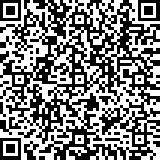You must get ready for a nursing interview if you are a nursing graduate or a licensed nurse searching for work in Australia. You have the chance to demonstrate your abilities, knowledge, and experience to a potential employer during a nursing interview. Let’s first define nursing interview questions and discuss what to anticipate before moving on to the advice.
Nursing Interview Questions: What to Expect
A mix of basic and scenario-based questions are frequently used in nursing interviews in Australia to gauge your clinical knowledge, communication abilities, and capacity to manage real-world nursing circumstances. Let’s examine some typical nurse interview questions and approaches to assist you in effectively preparing.
1. Can you tell us about your nursing background and experience?
This is frequently the first question, and it’s your chance to give a succinct summary of your nursing career. Concentrate on your pertinent experience, such as your clinical placements, specialty, and any other certifications or training you may have attained.
2. What do you believe are the most important qualities a nurse should possess?
Your comprehension of the nursing profession is evaluated by this question. Mention traits like compassion, empathy, effective communication, detail-orientedness, adaptability, and the capacity to function well under pressure.
3. How do you handle a difficult or demanding patient or family member?
Your interpersonal abilities will be evaluated by this scenario-based inquiry. Describe a scenario from your experience and describe how you handled the patient’s demands or concerns while remaining patient, sympathetic, and professional.
4. How do you prioritize patient care when multiple tasks demand your attention?
Here, the interviewer is testing your capacity for planning ahead and managing your time. Describe a system you employ to organize your workload so that patient care always comes first.
5. Describe a time when you made a critical mistake at work. How did you handle it, and what did you learn from it?
While acknowledging a mistake might be difficult, it’s important to do so in order to demonstrate your ability to develop and learn from your mistakes. Talk about what happened, how you handled it, and what efforts you’ve made to avoid making the same mistakes again.
Preparing for Nursing Interviews: Tips and Strategies

Now that you have a general concept of the kind of nursing interview questions you might be asked, let’s explore some efficient preparation and performance tactics.
- Research the Organization: Do some preliminary study on the hospital or other healthcare organization before your interview. Learn about their goals, principles, offerings, and most recent successes. Adjust your responses to fit their objectives.
- Review Nursing Basics: Make sure you have solid nursing fundamentals. Review the foundational ideas, techniques, and protocols important to the nursing profession.
- Practice Behavioral Interviewing: The majority of the interview questions for nurses are scenario- or behavioral-based. To deliver organized and thorough replies, practice your responses using the STAR approach (Situation, Task, Action, Result).
- Dress Professionally: Select the proper interview outfit, which is often a tidy, business-casual uniform. Pay close care to your appearance and hygiene.
- Mock Interviews: Think about taking part in dummy interviews with a mentor, friend, or expert interview coach. You can improve your responses and build confidence by participating in mock interviews.
- Prepare Questions: Prepare meaningful interview questions in advance. This indicates your enthusiasm for the job and company. Asking about nurse-patient ratios, possibilities for professional growth, or the facility’s philosophy of patient-centered care are a few examples.
- Showcase Your Soft Skills: Nursing requires interpersonal skills in addition to clinical expertise. Throughout the interview, emphasize your capacity for empathy, communication, teamwork, and problem-solving.
- Be Punctual: Allow for possible traffic or other delays and arrive for the interview on schedule. Being on time shows that you are dependable.
- Stay Calm and Confident: Though nerves are normal, it’s important to maintain your composure. Breathe deeply, look the person in the eye, and speak clearly and firmly.
- Follow-up: Send a thank-you letter or email following the interview to express your appreciation for the chance. Express your interest in the job and company once more.

Conclusion
Nursing interviews in Australia might be difficult, but you can improve your chances of success by thoroughly preparing and knowing the typical nursing interview questions. Don’t forget to demonstrate your clinical expertise, soft skills, and commitment to patient care.
Investigate nursing writing services if you need further assistance in your nursing career. You can flourish in your nursing studies by using these services to help with assignments, research papers, and other academic needs.
Now, armed with these tips and insights, you’re well-prepared to shine in your nursing interview and take the next step toward a rewarding nursing career in Australia.
Ready to enhance your nursing skills further? Explore our nursing care plan resources and take your nursing career to the next level.






